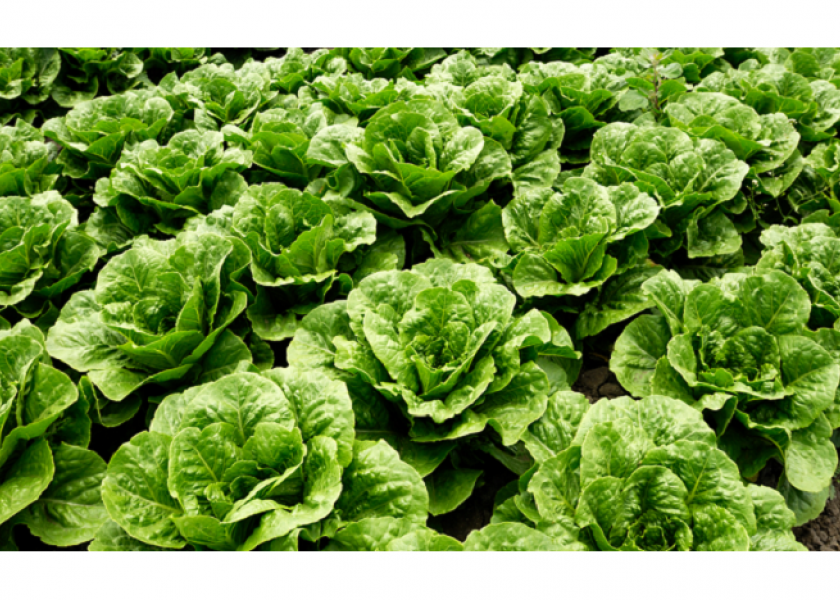Growers work to keep up with strong retail demand

With reports of panic buying of food across the U.S. because of the coronavirus COVID-19 outbreak, growers are on the front lines to replenish emptied retail produce department bins.
Rising f.o.b. markets and big demand kept California and Arizona grower-shippers working at 100% capacity in mid-March, even as some of their workers have to stay home with children because of school closures.
“Growers are trying to meet demand, which has increased all of a sudden,” said Dave Puglia, president, and chief executive officer of Western Growers.
While the initial surge of consumer buying related to the coronavirus was focused on pasta, dried beans, and cereal, he said grower-shippers report fresh produce demand now also has jumped.
“Growers are hearing it from retailers, ‘Give us more products,’ and so they’re responding as best they can,” he said. Citrus, carrots, and potatoes are among the longer shelf-life items finding big demand.
Prices for several California vegetables were on the rise in mid-March.
Shipping point prices for cartons of romaine lettuce increased from less than $6 on March 6 to about $15 per carton on March 17, with broccoli and cauliflower showing similar jumps, according to the U.S. Department of Agriculture. The USDA also noted higher prices for potatoes and citrus on March 17.
Retail business is up, said Jarret Strachan, sales representative with Growers Express LLC, Salinas, Calif.
“Right now we’re thinking foodservice is kind of falling off a little bit, but retail is picking up the pace in a hurry,” he said. “We are just here every day with our mitts open and hoping to catch some of this demand.”
He said retailers appear to be favoring longer shelf-life whole commodities as opposed to fresh cut value-added produce.
Part of that me be related to store-level restocking.
“I think that they are looking more towards the big items just so it’s easier for (store staff) to replenish their shelves faster,” he said.
While retailers were focused on nonperishable goods the first week of March, Strachan said March 17 that momentum appears to be turning toward the produce department.
“With everyone saying ‘Eat your fruits and vegetables,’ we’re hoping that the produce (part) of the story starts getting taken care of,” he said.
Strachan said demand is reduced from foodservice operators because of shutdowns related to COVID-19, though many restaurants continue to offer takeout menu options.
Paul Mocettini, vice president of sales and marketing for Muzzi Family Farms, Salinas, said the firm’s foodservice demand has slowed considerably, since wholesalers who sell to schools and restaurants represent a big part of their business.
“With the closures that are going on, the businesses is down quite a bit,” he said. On the other hand, Mocettini noted increased demand for the firm’s club and retail packs from buyers who are finding short supply elsewhere.
Worker challenges
There is concern about farm labor as the COVID-19 outbreak unfolds.
“One of the big challenges bubbling to the surface for our members is that school closures are forcing a lot of working couples on the farm to have one parent stay home, and that means one less person on a harvest crew or in a packing shed,” Puglia said.
Puglia said Western Growers is lobbying the state for temporary child care assistance for farmworkers with children who cannot attend school.
Growers also are concerned about the future movement of H-2A workers to the U.S., Puglia said.
“If there is a border closure on our southern border (related to coronavirus measures), that could shut off the movement of H-2A workers, which would also be devastating,” he said. Western Growers has registered those H-2A concerns with federal and state government officials, he said.
On the prevention front, Puglia said growers are doing all they can to provide good information to their employees about hygiene, washing hands and hand sanitizers to avoid the introduction and spread of coronavirus at the farm level, he said.
Growers are preparing for the worst but hoping the outbreak eases soon, he said.
Moving down the road
One welcome bit of news, he said, was the federal government’s decision to ease the hours of service regulation for truckers for truckers transporting emergency supplies of food. Puglia said that waiver will help the supply chain recover from recent panic buying at retail.
Exporters are still struggling to find enough refrigerated containers for their exports to Asia, he said. Congestion at Chinese ports has not allowed sufficient containers to be sent back to California, and Western Growers is working with the federal government to see what can be done to ease that shortage.
Like many other U.S. employers, Puglia said Western Growers is transitioning most of its 445 employees to work at home for the next several weeks, responding to government direction that calls for companies to limit the spread of the coronavirus.
A Western Growers board meeting scheduled in Sacramento for the week of March 23 was canceled, and the association is looking to connect with video conferencing.
While bringing many hardships, Puglia said the coronavirus crisis is an opportunity to emphasize the importance of fresh produce for good health.
“I hope this is an opportunity for the private sector to re-emphasize the importance of our industry to the nation’s food supply, (providing) the healthiest foods that Americans can and should be eating,” he said.
Related articles
No reason to avoid fresh produce during outbreak
How the coronavirus is affecting the industry
The Packer’s COVID-19 updates







